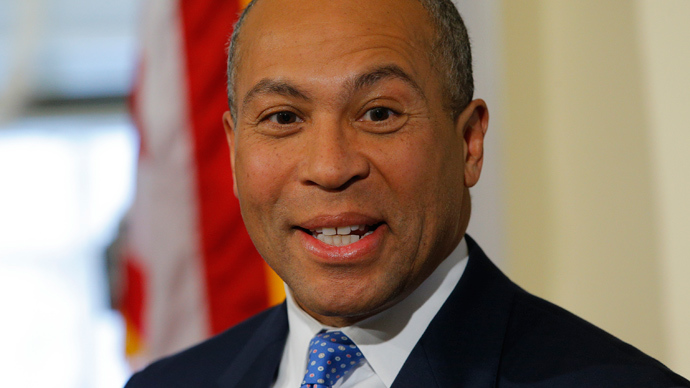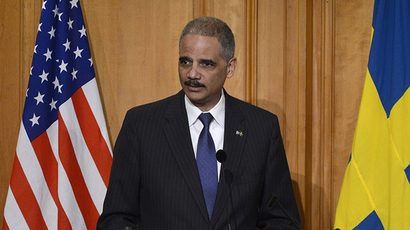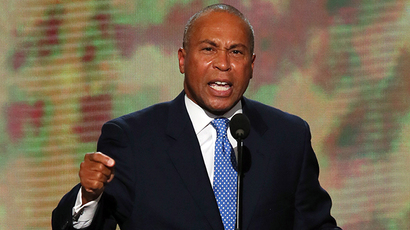‘Potentially lethal narcotic’ inches closer to public sale amid opiate epidemic

A major drug manufacturer has filed suit in an attempt to stop Massachusetts Governor Deval Patrick from enacting a statewide ban on its product after medical professionals warned that patients who ingest the painkiller could be making a fatal mistake.
Zohydro ER has not hit the market yet, but the opiate painkiller with a reported strength of 5 to 10 times the power of Vicodin has caught the attention of doctors and addiction specialists. The medical professionals, in a February letter to the Food and Drug Administration (FDA), pleaded with the regulatory agency to reconsider approving Zohydro after the FDA’s own advisory panel voted 11 to 2 against making Zohydro available to the public.
“In the midst of a severe drug addiction epidemic fueled by over prescribing of opioids, the very last thing the country needs is a new, dangerous, high-dose opioid,” the letter stated, as quoted by Forbes magazine. “It’s a whopping dose of hydrocodone packed in an easy-to-crush capsule. It will kill people as soon as it’s released.”
In response to those concerns and the broader northeastern dependency, Governor Patrick gave the Massachusetts public health commissioner permission to ban Zohydro “until determined that adequate measures are in place to safeguard against the potential for diversion, overdose, and misuse.”
The governor’s said that because the drug is not yet available in tamper-proof form the “potentially lethal narcotic painkiller” should be prohibited until the proper protections are in place.
A federal judge indicated on Tuesday that ban would likely not go through. US District Court Judge Rya W. Zobel did grant a temporary restraining order stopping Patrick’s directive, as Zogenix, the maker of Zohydro, requested, although she did schedule a follow up hearing on Monday and encouraged the two sides to work toward an agreement.
“I think, frankly, the governor is out of line on this,” she said, as quoted by the Boston Globe. “I do not expect this to be a very long hearing.”
The judge said her rationale was based primarily on the FDA’s decision to approve the drug in October even over the concerns of the advisory board. The agency acknowledged that Zohydro does have a high possibility for abuse and should be reserved for patients for whom other medicines have not been effective.
“Zohydro ER was approved by the FDA after an exhaustive 18-month review of the clinical trial data,” Zogenix Chief Executive Roger Hawley said in a statement Monday. “This rigorous FDA review process serves the nation’s public health needs, the medical community and those in severe chronic pain, and the FDA regulatory authority simply should not be usurped by individual states.”
Before Governor Patrick declared that opiate addiction had caused a public health emergency in Massachusetts, Vermont Governor Peter Shumlin said in his State of the State speech that heroin dependency “threatens the safety that has always blessed our state.”
The use of opiates has exploded in the US in recent years as painkillers, Oxycontin in particular, have become easier to acquire. Hoping for a stronger and more immediate high, addicts often crushed Oxycontin pills and snorted the dust until drug manufacturers discovered this and adjusted by releasing pills in droplet form. Solid pills thus became more expensive and harder to come by, turning users onto heroin and leaving law enforcement officers scrambling for a way to curb the problem.
Shumlin announced a similar ban in Vermont, questioning why some authorities seem to continue ignoring the nationwide prescription drug problem.
“What puzzles all of us is the recent FDA action to approve a new opiate that’s stronger and likely to be even more addictive because of its strength,” he told CBS. “Zohydro has been approved by the FDA to the bewilderment of many of us.”
All of which has made lawmakers and the public nervous about how liberally pain medication is used. Making things more complicated is that different drugs affect people in different ways, Dr. Zongfu Chen, a clinical associate professor and director of the pain service of the University of Pittsburgh Medical East, told NBC News.
“The bottom line is no matter which narcotic you’re talking about, if you don’t use it right it can be abused,” Chen said. “It can be addictive. It all depends on how doctors monitor it. It could be lifesaving. But if used the wrong way, like any medication, it can cause trouble.”














